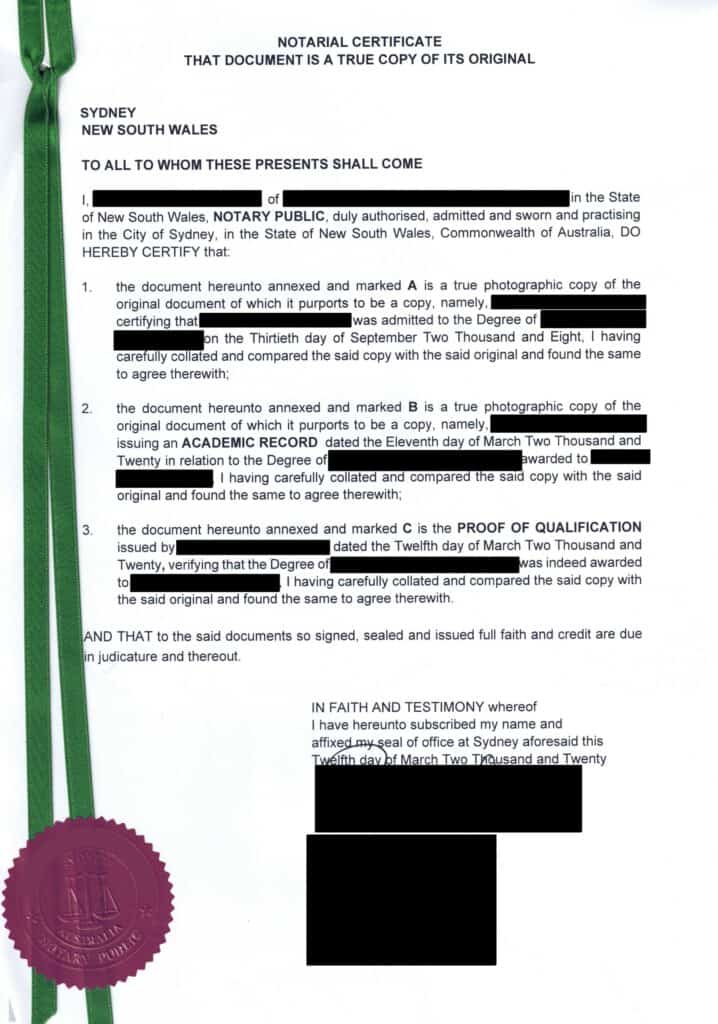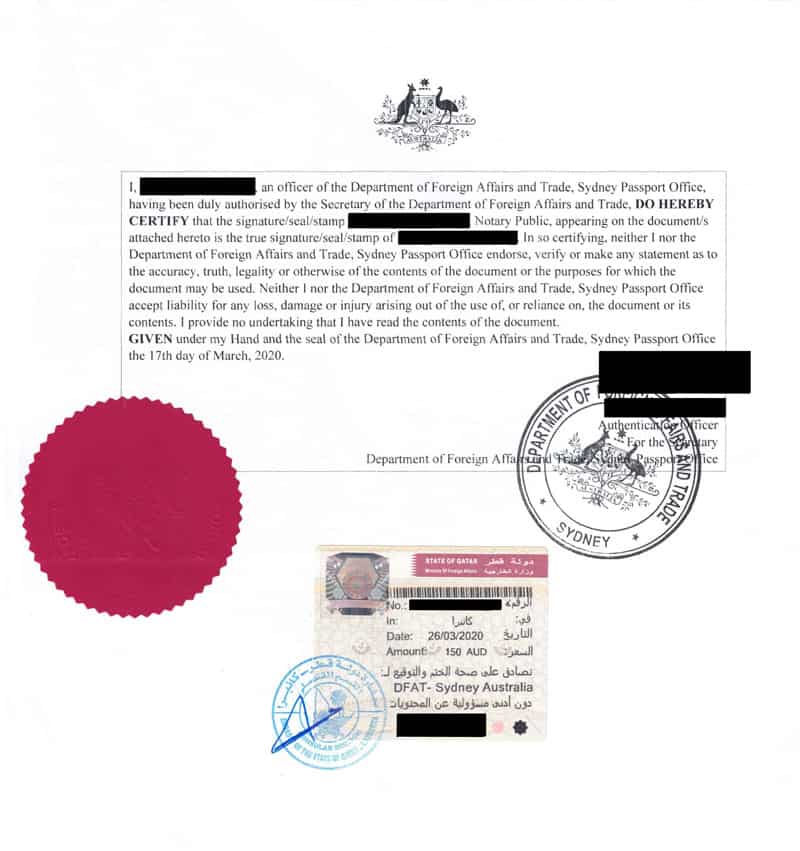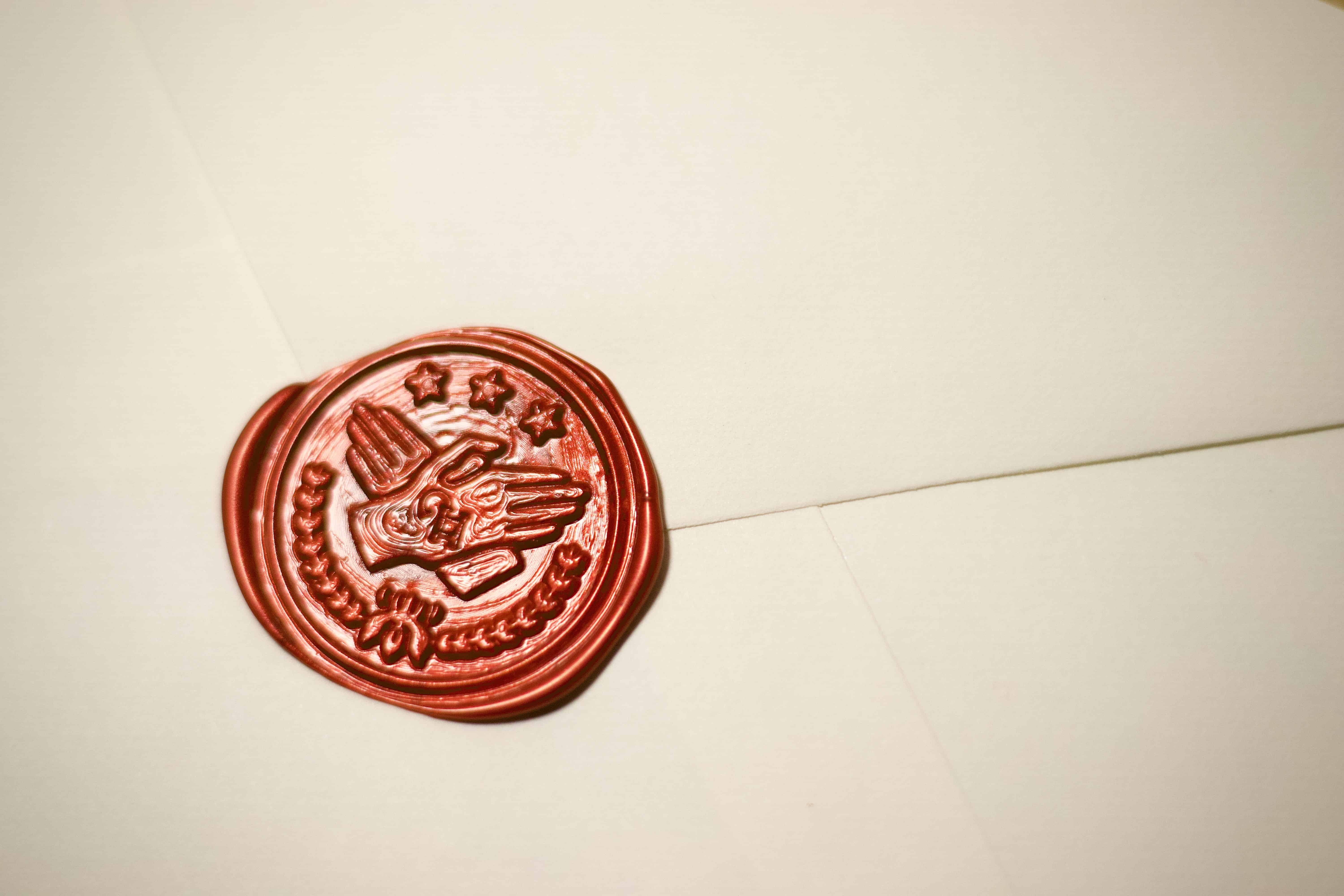FAQ: define attestation because, really, what does attestation mean?!
What does attestation mean?
First, let’s define attestation with the help of a dictionary. To take the dictionary definition from Merriam-Webster, attestation means “An official verification of something as true or authentic.” This term is commonly used in relation to the legal witnessing of documents for verification purposes, also known as notarisation (get more definitions here).
Can you define attestation in relation to the verification of documents?
In Australia, attestation refers to the notarial attestation of Australian documents for use either within Australia or abroad. This involves the performance of notarial witness to produce certified, legally recognised copies.
Here at Authentifier, we go beyond notarial attestation for local use, to full document attestation for use overseas. So, what does attestation mean in this context? Attestation is a form of international recognition of documents. This method is typically used for foreign public documents (i.e., issued by governments, judicial officers or certain other officials). Attestation—the extra step needed beyond notarisation for use overseas—gives the recipient assurance that the document has been rendered original and genuine.
What is notarial attestation?
What does attestation mean in the context of notarial attestation? Notarial attestation refers to the issuance of a notarial certificate. Notarial certification is legal recognition of attestation. A notarial certificate is also a way of grouping multiple documents that need witnessing under a single notarial certificate, making further legal verification by bodies such as the Department of Foreign Affairs and Trade (DFAT) less expensive as only the single notarial certificate needs to be legalised, rather than the multiple documents the certificate covers. Read on to see an example image of a notarial certificate.
Why do people need document attestation?
We get this question almost as much as ‘What does attestation mean?’. Most people only need to define attestation when they’ve come across a reason to need to use it! There are many circumstances in which people require document attestation. These include verification that requested documents have been signed/stamped as proof that they are legally witnessed to be true. People are most frequently required to provide attestations when starting a new job or course of study in a country outside Australia, in which case documents including student degree certificates, a birth certificate, police checks among others may be requested. A lot of our clients also request attestation for documents in support of visa applications.
Examples of common attestation requirements
Is there a standard international process for document attestation?
The Hague Apostille Convention
The International Standard for Legalisation (ISL) or Apostille, as it is more commonly known, enables documents to be recognised across borders with a minimum of fuss. The Apostille isn’t valid in all countries, but it is recognised by many of the countries commonly visited by people who need Australian document attestation, including the UK and most European countries. Read more on What is an Apostille?.
Document attestation requirements for countries not party to the Apostille Convention
Countries not covered by the Apostille, but commonly requiring document attestation in Australia include the UAE, Qatar, Thailand, Iraq and Lebanon. For these countries, the process involves notarisation of original documents, followed (in some cases) by authentication by DFAT, and then a final attestation signature by the relevant embassy or consulate.
Who can provide document attestation?
Attestation of Australian documents intended for use overseas need to be performed by a qualified notary. Obtaining an Apostille Certificate is very straightforward, and can be provided by us here at Authentifier. If document attestation is needed for countries where embassy and/or DFAT legalisation are also required, it takes a bit longer to confirm legalisation of documents with the additional agencies (that require a visit in person), however our well-honed, all-in-one Australian document attestation service and relationships help to speed this up. Authentifier can issue the attestation of documents from all states and territories in Australia, as well as in response to requests for Australian document attestation from people overseas.
How do you know when someone has made an attestation on a document?
When a document has been attested, it is sealed/signed with the date by an authorised person to indicate that the information on this document is true and correct. Notarial Certificates contain a stamp, which is designed to help recipients identify authenticity and validity. See the images below for examples of attestation in the form of a simple notarial certificate and a more complex document for overseas use showing a notarial stamp + embassy seal + DFAT stamp.


What are the benefits of document attestation?
In most cases, the benefit is fulfilment of a mandatory requirement for truth and authenticity of evidence in support of an application (be it for personal or business use). Without attestation, an employer or other entity requesting evidence in support of an overseas job application or business activity, will be unable to accept the validity of that evidence.
So, now you know how to define attestation, do you know how to get your documents attested?
What does attestation mean for you? It can be difficult to live or work abroad if you don’t have the right documents. Attestation refers to notarial certification of a document and it often requires an individual’s signature on the document as well as the signature of a legal witness (i.e. a notary) and seal of the relevant government official.
If you need attestation for a move abroad, our online process for personal document attestation and corporate document attestation clients makes it easy. Our relationships with the major embassies and consulates in Sydney and Canberra, as well as DFAT, cut through the red tape for an efficient, end-to-end process for document attestation and full document verification for your next big move.
WHAT DOES ATTESTATION MEAN? IT MEANS GETTING YOUR DOCUMENTS SORTED SO YOU CAN WORK ABROAD. AND WE CAN HELP.
Skip the embassy. Skip the DFAT queue. Skip the admin. Take the stress out of notary attestation and the entire process and let us manage your attestation for you.






